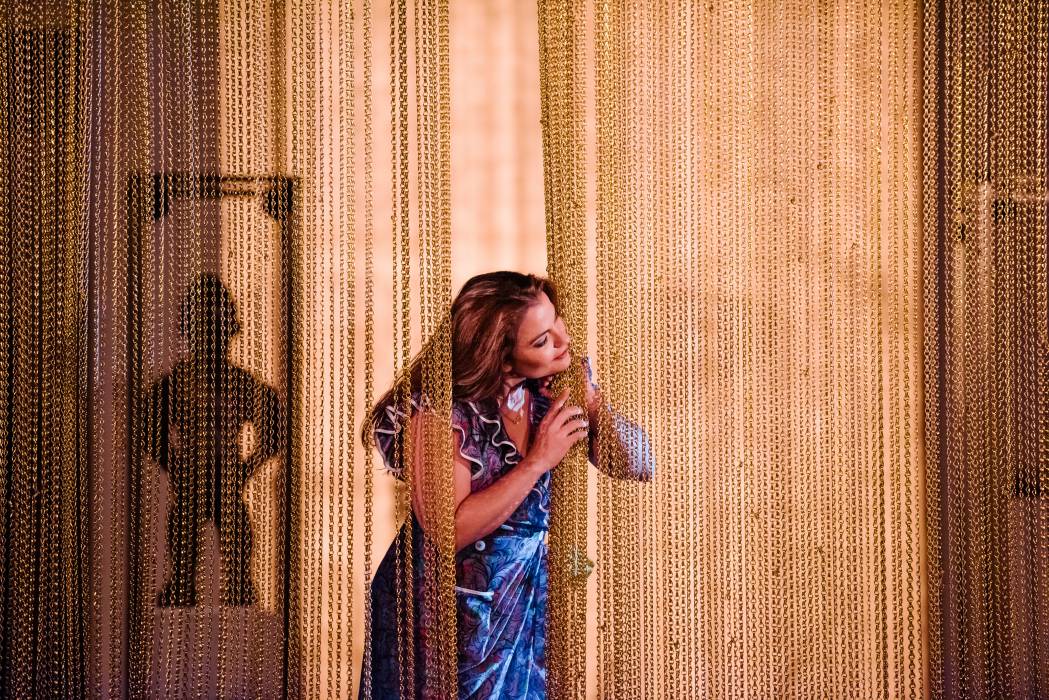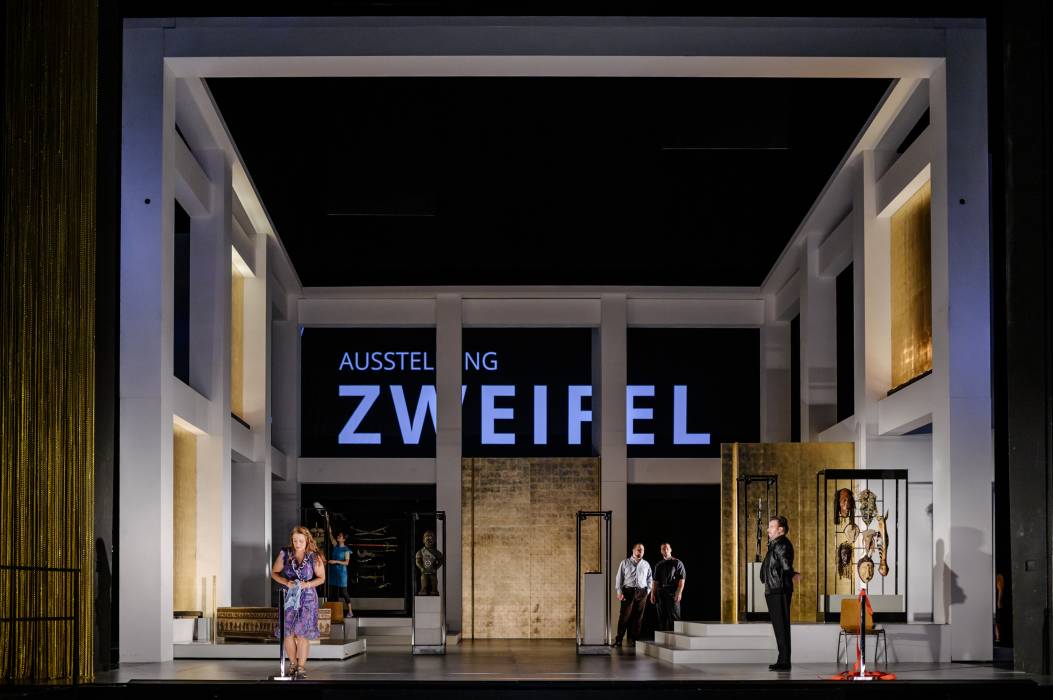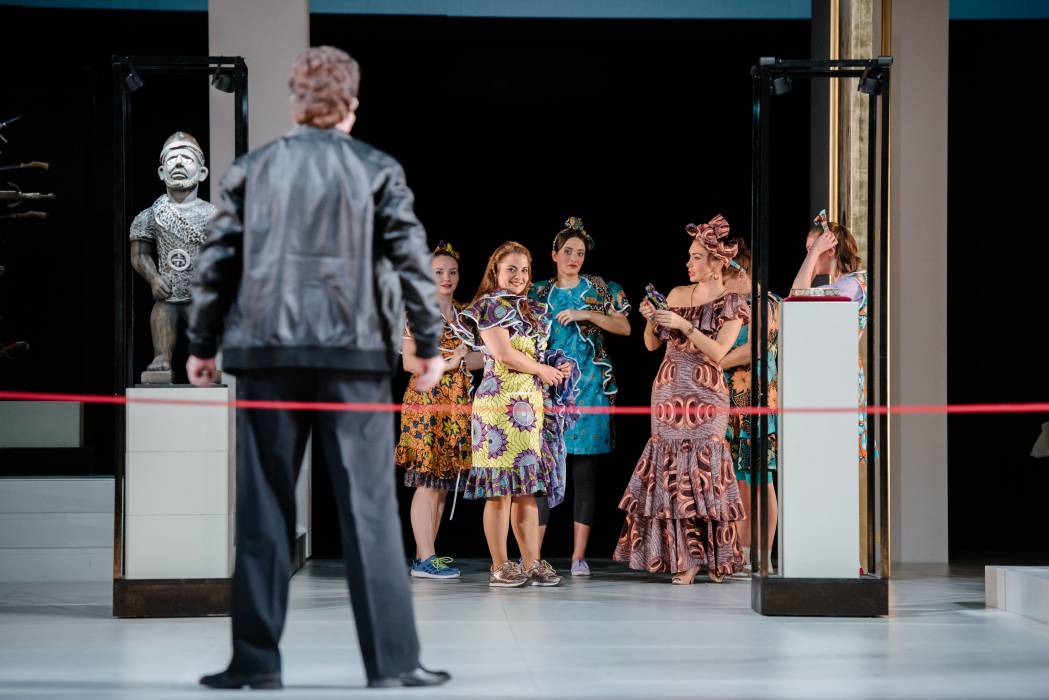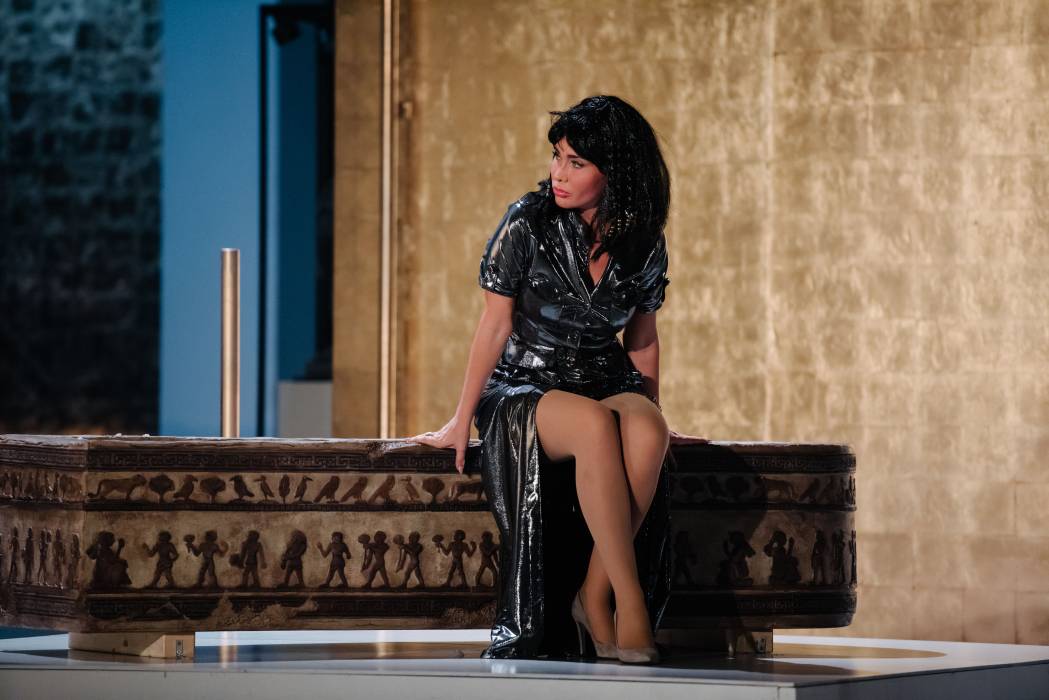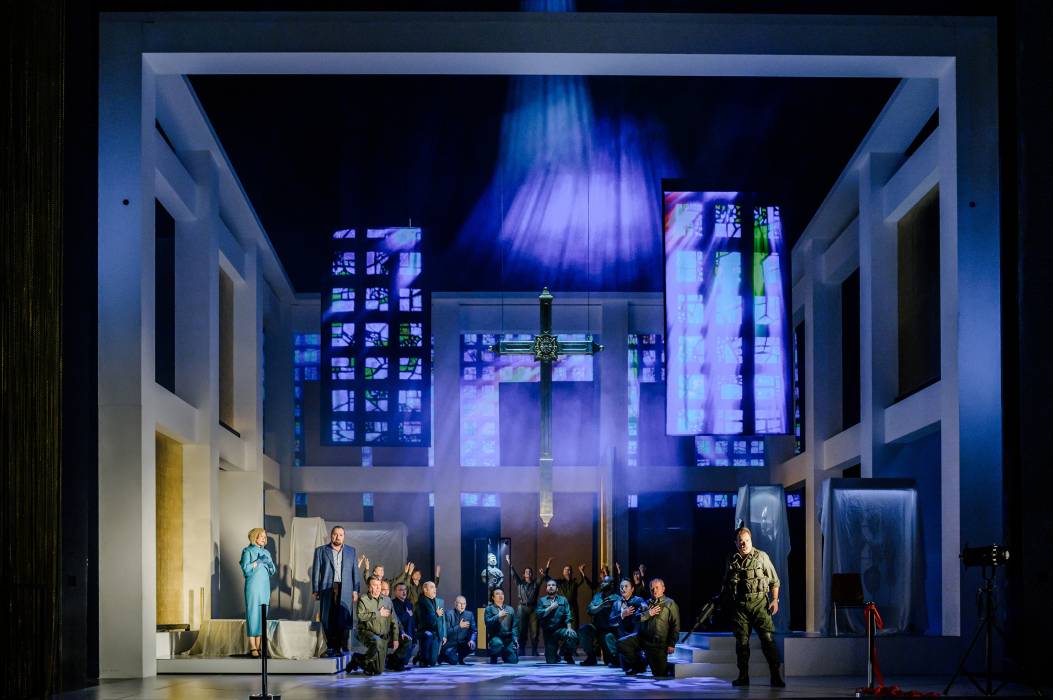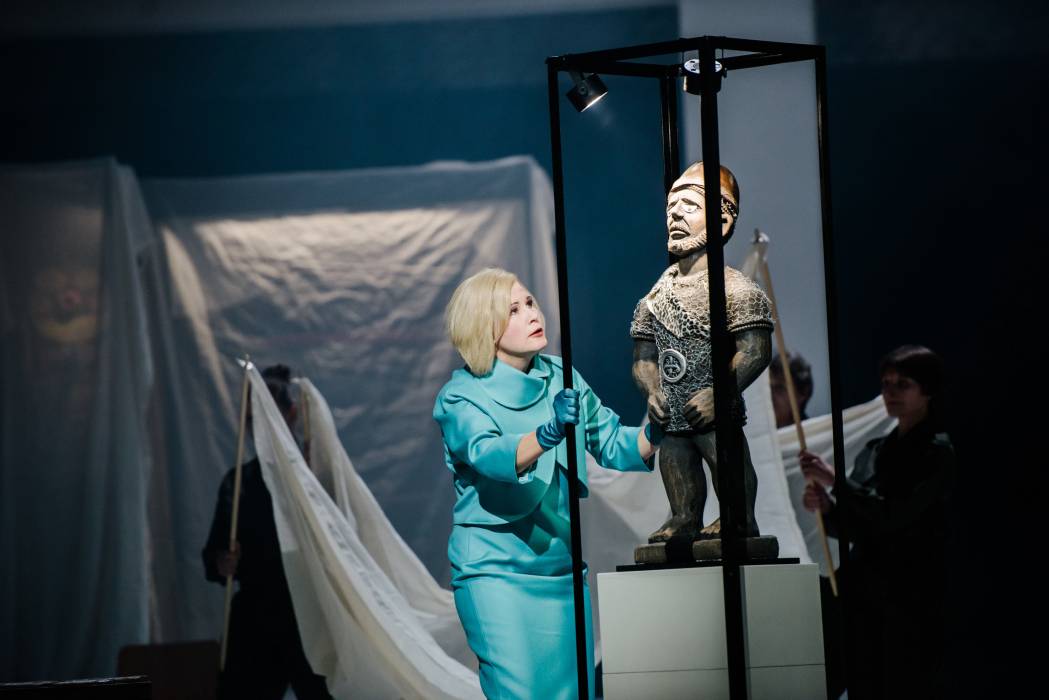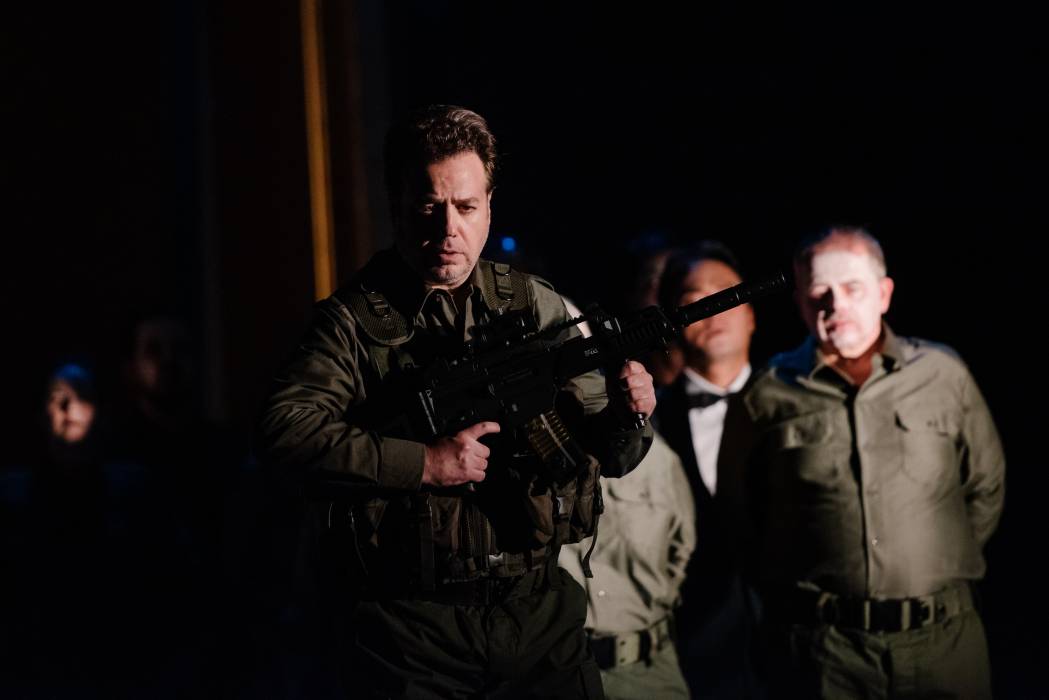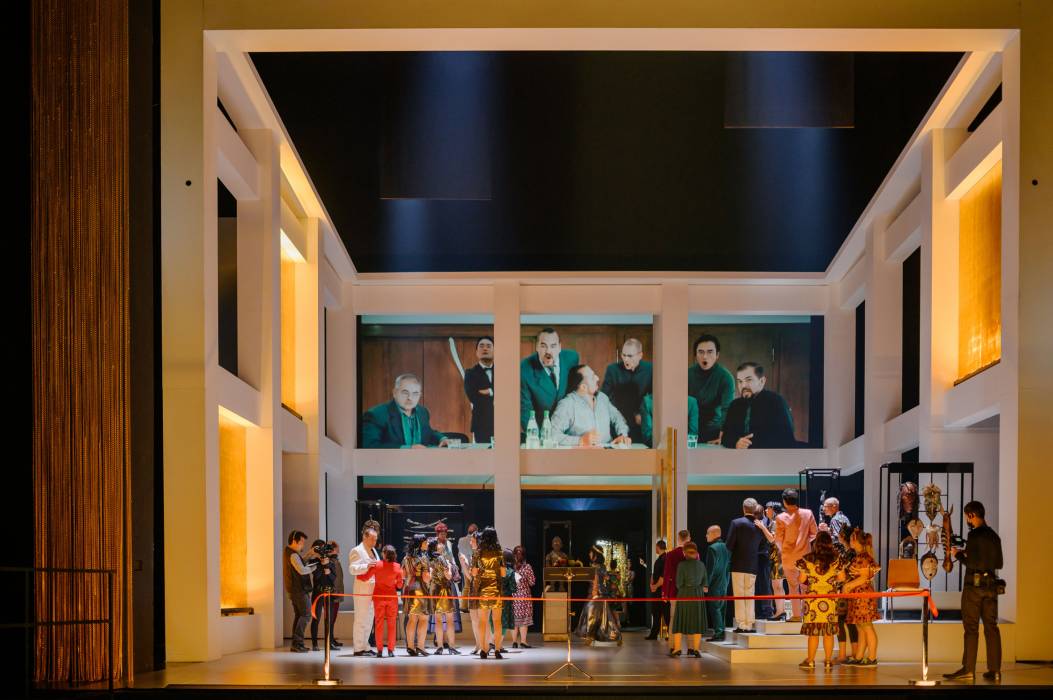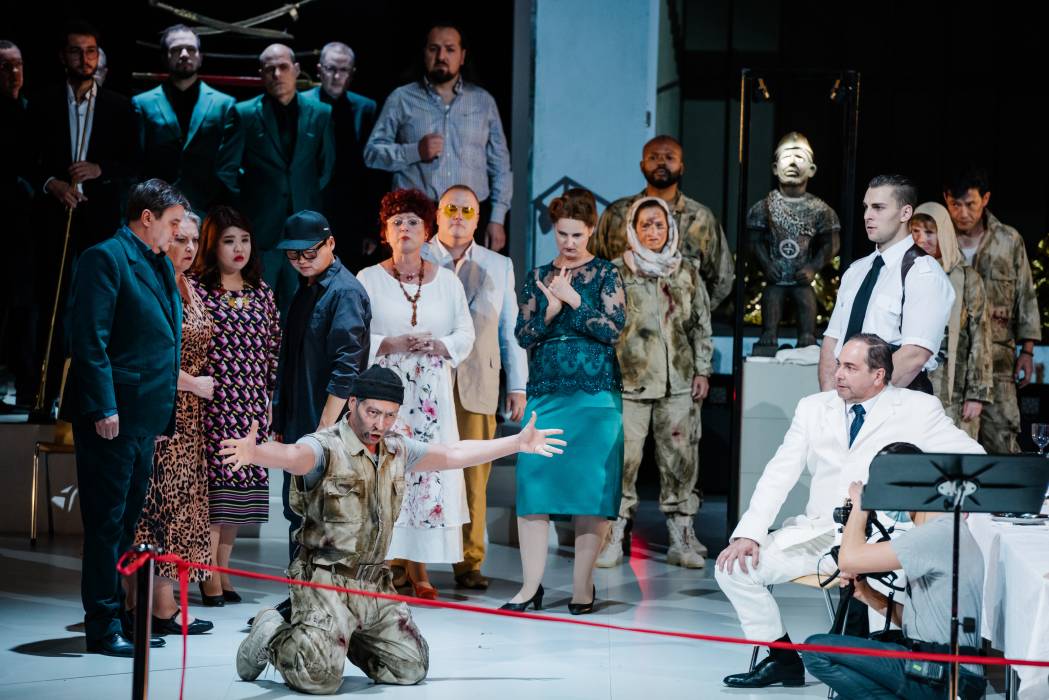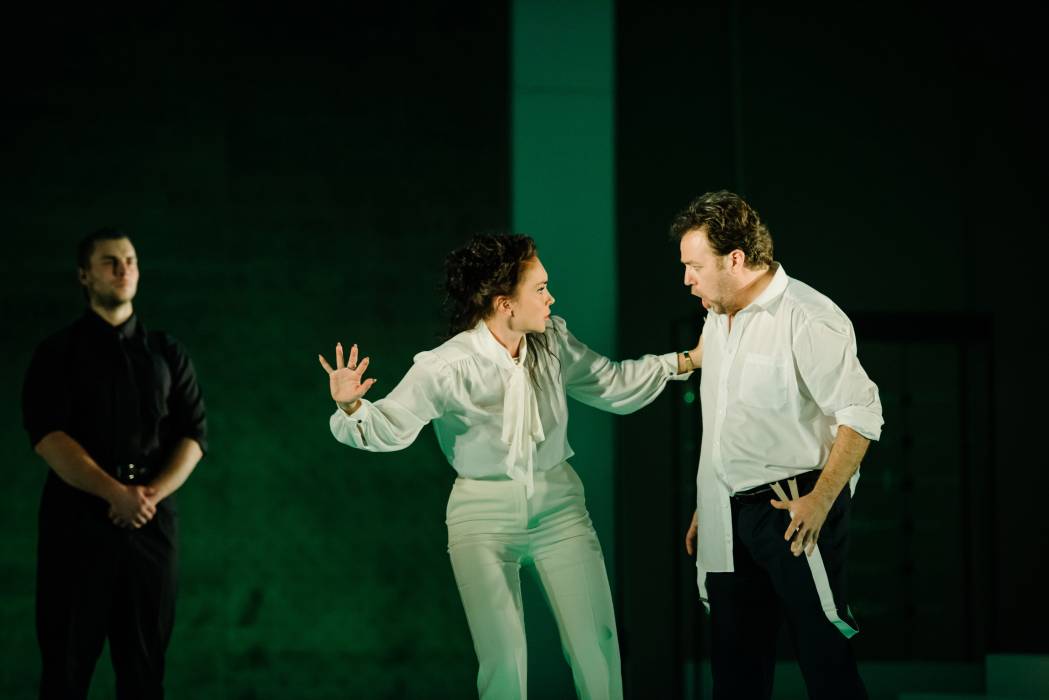»(…) damit zeigt Andrea Moses eindrucksvoll, warum ›Aida‹ als Konglomerat von ideologischer Affirmation und sozialer Anklage weiterhin faszinierende Aktualität besitzt.« (Roland Dippel, Die Deutsche Bühne online)
»So wie jetzt in Weimar, wo Moses Epochen und Perspektiven verschränkt, um daraus packendes Musiktheater zu machen, das seine Bildersprache aus unserer Gegenwart bezieht. (…) eine „Aida“, die als Aufforderung zum Diskurs ebenso ihre Meriten hat, wie als sinnlich packendes Theaterereignis!« (Joachim Lange, Dresdner Neueste Nachrichten)
»Oper lebt! So furios startet das DNT aus der Corona-Krise. Andrea Moses, die neue Musiktheaterdirektorin, hat Verdis Triumphaloper frech und ironisch zum antikolonialistischen Fanal umgedeutet. Magisch zieht uns ein Fest der Stimmen in den Bann, Chefdirigent Dominik Beykirch formt die Partitur schwulstfrei und hochdramatisch. So werden die Besucherinnen und Besucher hin- und hergerissen zwischen hyperwachem Erkenntnisgewitter und elysischem Koma. (…) Doch wäre einer Andrea Moses die heutzutage virulente Kritik an kultureller Ent- und Aneignung mittels kolonialer Beutekunst viel zu wenig. Sie stellt das Wertesystem der westlichen Gesellschaft in Frage.« (Wolfgang Hirsch, Thüringische Landeszeitung)
- Dominik Beykirch (Musikalische Leitung)
- Andrea Moses (Regie)
- Jan Pappelbaum (Bühne)
- Kathrin Plath (Kostüme)
- René Liebert (Video)
- Michael Höppner (Dramaturgie)
- Jens Petereit (Choreinstudierung)
- Andreas Koch (König)
- Sayaka Shigeshima (Amneris)
- Camila Ribero-Souza (Aida)
- Eduardo Aladrén (Radames)
- Avtandil Kaspeli (Ramphis)
- Alik Abdukayumov / Oleksandr Pushniak (Amonasro)
- Taejun Sun (Bote)
- Heike Porstein (Tempelsängerin)
- Opernchor des DNT
- Staatskapelle Weimar
- Statisterie des DNT
